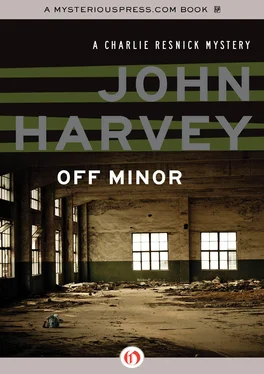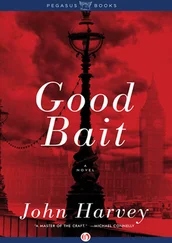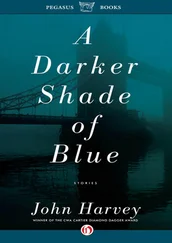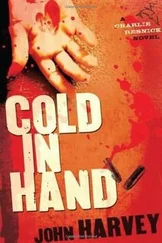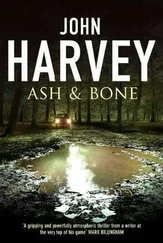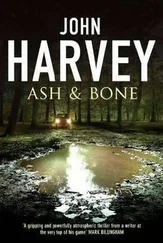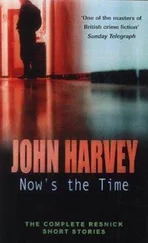John Harvey - Off Minor
Здесь есть возможность читать онлайн «John Harvey - Off Minor» весь текст электронной книги совершенно бесплатно (целиком полную версию без сокращений). В некоторых случаях можно слушать аудио, скачать через торрент в формате fb2 и присутствует краткое содержание. Год выпуска: 1991, ISBN: 1991, Издательство: Arrow, Жанр: Полицейский детектив, на английском языке. Описание произведения, (предисловие) а так же отзывы посетителей доступны на портале библиотеки ЛибКат.
- Название:Off Minor
- Автор:
- Издательство:Arrow
- Жанр:
- Год:1991
- ISBN:9780099421566
- Рейтинг книги:4 / 5. Голосов: 1
-
Избранное:Добавить в избранное
- Отзывы:
-
Ваша оценка:
- 80
- 1
- 2
- 3
- 4
- 5
Off Minor: краткое содержание, описание и аннотация
Предлагаем к чтению аннотацию, описание, краткое содержание или предисловие (зависит от того, что написал сам автор книги «Off Minor»). Если вы не нашли необходимую информацию о книге — напишите в комментариях, мы постараемся отыскать её.
Off Minor — читать онлайн бесплатно полную книгу (весь текст) целиком
Ниже представлен текст книги, разбитый по страницам. Система сохранения места последней прочитанной страницы, позволяет с удобством читать онлайн бесплатно книгу «Off Minor», без необходимости каждый раз заново искать на чём Вы остановились. Поставьте закладку, и сможете в любой момент перейти на страницу, на которой закончили чтение.
Интервал:
Закладка:
Raymond’s attention wavered more than a little in the course of this, steering Sara from one side of the pavement to the other, so as to avoid whichever bunch was hollering at the tops of their voices, blocking their way so they would have to step out into the road. That and glancing sideways at her skirt, even now she was walking, still above her knee; the silk flash of her blouse beneath the dark unbuttoned jacket that she wore, swell of her small breasts. Waiting for the lights to change at the bottom end of Hockley, that was when he touched her for the first time, his hand moving against the inside of her upper arm, circling it there.
Sara smiling: “’S good of you to walk me home.”
“No problem.”
She squeezed her arm to her side, Raymond’s fingers trapped warm between.
The waste land off to one side of the road, Raymond’s uncle had told him once it all belonged to the railway, like as not still did. A murky scattering of buildings, large and small, all manner of stuff that people had junked dumped in between. After dark, flat-bed lorries would back in, vans with names repainted over and over on their sides: next morning others would come with prams and handcarts, picking through the debris, hauling away whatever they could use or sell.
Sara shivered, her breath blurred on the air, and Raymond took and squeezed her hand; the bones of her fingers tiny, brittle like a child’s.
“C’mon,” he said, pulling her past a pile of broken masonry towards the hulk of a disused warehouse, bolstered up towards the sky.
“What d’we have to go in there for?”
“’S all right.”
Raymond scooped up a stone and hurled it high: there was the splintering of glass, small and distant, as the last fragments of window fell away: the fast flutter of pigeons taking off, sudden and abrupt.
Off to the left, Raymond saw a cigarette glowing through the dark. He moved his hand and touched Sara’s blouse at the back, beneath her coat: under the slide of silk, knots of her spine. Inside the building he bent his head to kiss her hair and she turned her face and instead he kissed her mouth, the edge of it first, not quite right, moving till his mouth was over hers, taste of chocolate from the faint hairs on her upper lip.
“Ray, is that what they call you? Ray?”
Raymond smiling, feeling for her breast. “Ray-o.”
“Ray-o?”
“Sometimes.”
“Like a nickname?”
“Yes.”
He took off his coat and then hers, laying them on the ground, concrete and packed earth from which the boards had long been ripped.
“What’s this?”
“Where?”
“Sticking in my back.”
He eased her up, unzipped his inside pocket and removed the knife.
“Ray, what is it?”
“Never mind.”
In little more than outline, she could see his face; see the metal object in his hand.
“It’s not a knife, is it? Raymond? Is it?”
Looking down at her, the sharp, almost pretty features of her face as his eyes grew accustomed to the scarcity of light.
“Is it? A knife?”
“Maybe.”
“Whatever d’you want a knife for?”
He dropped it from sight into his trouser pocket and reached towards her. “Never mind.”
Less than five minutes later, the front of his cords unzipped, he had come against her hand. As they lay there, not speaking, he could feel her ribcage rise and fall as she breathed.
“Ray-o.”
He rolled over and sat up and she fumbled a tissue from her bag.
“What’s that?”
“What now?”
“That smell.”
He felt himself blushing and got hurriedly to his feet, embarrassment in his voice. “I can’t smell nothing.”
“Yes. I’m certain. Back in there.”
She was staring where the back wall disappeared into the darkness, past piles of rotted cardboard, sodden sacking and old boxes. And though Raymond didn’t want to admit it, he could smell it too, not unlike the tubs where he worked, brimful of all the tubes and offal-ends, the guts, the tripes and lights.
“Where are you going?” Alarm in Raymond’s voice.
“I want to see.”
“What for?”
“I do. That’s why.”
One hand clamped across his nose, he followed her, thinking all the time that what he should do was turn round, walk away, leave her.
“Fuck’s sake, Sara, it could be anything.”
“No need to swear.”
“Dog, cat, anything.”
Sara took the lighter from her bag and held it high above her head, snapping it to life. The stench had already raised tears in her eyes. In the furthest corner a wooden door had been wedged at an angle between floor and wall; behind it, broken planks and cardboard had been stuffed and piled.
“Sara, let’s get out of here.”
Her lighter went out and when she clicked it on again, a young rat wriggled from beneath the pile and raced away along the line of the wall, its belly hanging low.
“I’m going.”
And as Raymond shuffled back, Sara, unbelievably, took two, then three, then four more paces forward. When at last she stopped it was because she was certain of what she saw: the heel of a child’s blue shoe, what might once have been the fingers of a hand.
Six
“What’s the matter, Charlie? You look distracted.”
Resnick was sitting in one of three chairs across from the superintendent’s desk, one leg crossed above the other, mug of lukewarm coffee in his hand.
“No, sir. I’m fine.”
“Fashion statement then, is it?”
Resnick realized that Skelton was looking towards his feet, one black sock, thin nylon, the other a washed-out gray. Resnick uncrossed his legs, sat forward in the chair. When the phone had rung, wrenching him from sleep, he had been in a hospital ward with Elaine, his ex-wife strapped down in the bed, a mixture of terror and pleading in her eyes, while Resnick, in a white doctor’s coat, had looked down at her and shaken his head, instructed the nurse to expose the arm, prepare the vein, he would administer the injection himself.
Even the shower, switched from blistering hot to cold and back again, had failed to lift the sweat from his body. The guilt.
“Run it by us, Charlie. What’ve we got?”
The others in the room aside from Resnick and Jack Skelton were Tom Parker, the DCI from Central station, and Lennie Lawrence, chief inspector and Skelton’s deputy. Tom Parker was nine months short of retirement, mind set on a smallholding in Lincolnshire, him and the wife and a few dozen chickens, pigs, possibly a couple of goats. His wife was partial to goats. If this hadn’t cropped up, Sunday morning, he’d have been out at his allotment, not a great deal to do but pull some potatoes, get his fork down into the compost, keep his back in shape for all the digging that was to come. Len Lawrence would be going out on just about the same day, off to help his son-in-law run a pub on the outskirts of Auckland, even this far ahead the tickets booked, deposit paid. The last thing either man wanted, their last winter on the force, was this.
“Couple came into the station, sir, little after two. Reported finding what they thought was a body in an empty building, that waste ground in Sneinton.”
“Why report it here?” Lawrence interrupted. “Central’s more obvious, closer.”
“Seems there was some question about reporting it at all. They must have come across it a couple of hours before, nearer twelve. One of them, the lad, he’s got a room in Lenton, our patch. When finally they decided to come in, that was where they were.”
“The body, Charlie,” said Parker. “Identification?”
Resnick shook his head. “Difficult. Apparently been there quite a while. A lot of natural decomposition, though this cold snap’s helped us some. Body seems to have lain largely undisturbed. Whoever put it there had wrapped it inside two large plastic bags …”
Читать дальшеИнтервал:
Закладка:
Похожие книги на «Off Minor»
Представляем Вашему вниманию похожие книги на «Off Minor» списком для выбора. Мы отобрали схожую по названию и смыслу литературу в надежде предоставить читателям больше вариантов отыскать новые, интересные, ещё непрочитанные произведения.
Обсуждение, отзывы о книге «Off Minor» и просто собственные мнения читателей. Оставьте ваши комментарии, напишите, что Вы думаете о произведении, его смысле или главных героях. Укажите что конкретно понравилось, а что нет, и почему Вы так считаете.
